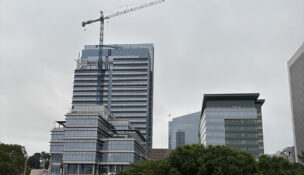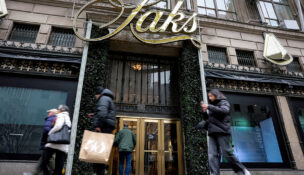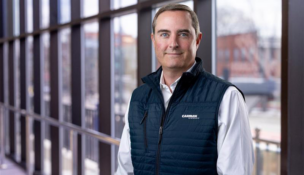Google agrees to buy power from planned Chesterfield fusion plant
Tech juggernaut signs 200MW power purchase agreement with Commonwealth Fusion Systems

A rendering of Commonwealth Fusion Systems' planned facility in Chesterfield County. Image courtesy CFS.

A rendering of Commonwealth Fusion Systems' planned facility in Chesterfield County. Image courtesy CFS.
Google agrees to buy power from planned Chesterfield fusion plant
Tech juggernaut signs 200MW power purchase agreement with Commonwealth Fusion Systems
SUMMARY:
- Google signs 200MW power purchase agreement with Commonwealth Fusion Systems
- CFS plans to build first grid-scale commercial fusion plant in Chesterfield
- ARC facility expected to deliver carbon-free power in early 2030s
- Google increases investment stake in CFS
Google has signed an agreement to buy electricity from Commonwealth Fusion Systems’ planned Chesterfield County facility — expected to be the world’s first grid-scale commercial fusion power plant.
The Massachusetts-based fusion energy company announced in December 2024 its plans to build the 400-megawatt facility, dubbed ARC, in Chesterfield. The power plant will likely cost more than $2.5 billion, according to Chesterfield’s economic development director, Garrett Hart.
CFS expects ARC to begin generating carbon-free power for the grid in the early 2030s. Google signed a power purchase agreement for 200 megawatts (half the facility’s expected electric power output), according to a Monday announcement.
According to the announcement, Google — now CFS’ first customer — will also have the option to offtake power from future ARC plants.
The tech giant, which has been an investor in the nuclear fusion company since 2021, is also increasing its stake in CFS, although the companies did not disclose financial terms. Since its 2018 funding, CFS has raised more than $2 billion from high-profile investors including Jeff Bezos, Bill Gates, Tiger Global Management, Khosla Ventures and Lowercarbon Capital.
The project would be located at 1201 Battery Brooke Parkway in the James River Industrial Center, a site owned by Dominion Energy. CFS has signed an option-to-lease agreement for the site, according to spokesperson Christine Dunn.
CFS filed an application with Chesterfield County in May for a permit to build the plant. The company plans to begin construction in the late 2020s.
Spun out of MIT in 2018, CFS is one of more than 40 companies currently pursuing fusion technologies and says it is the largest private fusion company in the world. CFS’ Series B2 round has raised more than $1 billion and is now targeting between $1 billion and $1.5 billion, Axios Pro reported in mid-May.
The company is building a fusion demonstration machine, nicknamed SPARC, at its headquarters in Devens, Massachusetts. CFS began assembling the machine’s tokamak — a fusion device that uses electromagnets to create the right conditions for fusion energy — in March. SPARC will begin commissioning in 2025 and start operations in 2026, according to CFS’ zoning application.
Google’s power purchase agreement with CFS “is anchored in CFS’ SPARC achieving net fusion energy, known as Q>1,” according to a news release. CFS expects SPARC to achieve net fusion energy in 2027, according to a Monday blog post from CFS CEO Bob Mumgaard.
ARC will use magnetic fields for the fusion process. In the process, two forms of hydrogen — deuterium and tritium — fuse, creating helium and releasing neutrons. A “molten salt liquid ‘blanket’ surrounding the plasma will capture the energy of the neutrons in the form of heat,” according to CFS’ zoning application. The molten salt then circulates through heat exchangers — systems that transfer heat between fluids — to produce steam, which turns a turbine connected to an electricity generator.
n

















